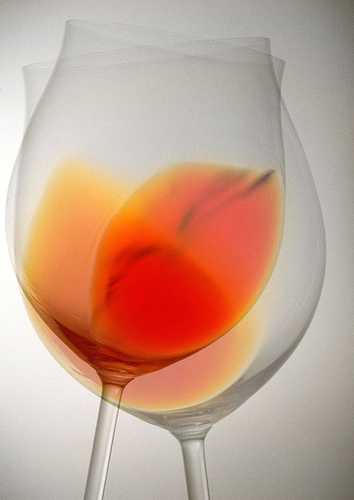FWP:
SETS
GATHERINGS: {6,3}
WINE: {49,1}
The two lines contrast the situation of the true lover with that of the Others, but how? The commentators' consensus is that he's not invited to the beloved's gatherings at all: he just stays home and tortures himself with visions of how much fun they're having. If we look carefully, however, we see that there are a number of possibilities
=The Others are invited to her gatherings; the speaker is not.
=The Others attend her gatherings; he does not (even if he's invited).
=The Others drink wine; he does not.
=The Others flirtatiously 'kiss' the wine-cups; he does not.
The true lover is, in short, much harder to please than the Others are; they will settle for a nice evening of sociability and drinking, while he is 'thirsty-lipped' not for wine or company or flirtation, but only for a 'message'. Of course, the verse doesn't tell us what the 'message' is about-- but then, it's not hard for us to come up with some ideas. For surely the message would be as thirst-delighting and as intoxicating as wine, it would be as 'kissable' as the rim of a delectable glass of wine.
Moreover, the whole thing is presented in the subjunctive, depicting something that 'would' or 'might' occur. This element of uncertainty adds to the multivalence of the verse. Could all this be hypothetical? If so, the lover may be planning his tactics for the future. Or else the first line could be construed as 'Others may take...' or 'Let others take...', while the second line proposes the behavior that he himself would then adopt.
For more on yūñ , see {30,1}; here its sense of 'like this' seems to be the dominant one.

Nazm:
This is a verse in a situation of longing, and by 'gathering' is meant the beloved's gathering, and by 'message' is meant the 'sought-for message', and he has brought in the word 'thirsty' because of wordplay with the word 'cup'. (203)
== Nazm page 203